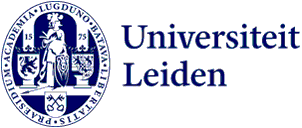
Combining art and science in the recovery of Ukraine
How wonderful would it be to use art, technology and science in Ukraine's recovery? Young Ukrainians currently residing in Poland get guidance to develop creative programmes and activities that can later be implemented. Leiden astronomers Pedro Russo and Kateryna Frantseva cooperate in the project.
‘Right now, the war is still going on’, Frantseva says, ‘but in the meantime, the Ukrainian government is already trying to create a route for recovery. They will have to rebuild a big part of the country. That includes not only infrastructure but also things such as education, community and tourism.’
Inspired by the Ukrainian recovery plan, several organisations and the U.S. Embassy in Warsaw set up the project under the name SPLOT UA Residency. ‘The project contains three topics. The first one is Healing the city, which focuses on the well-being of communities, leisure and cultural and entertainment activities. In the second one, named Rewilding the night, the focus lies on astronomy, light pollution, the protection of the dark skies and Astrotourism. And last, there is Revitalizing education. There we focus on digital literacy, school formats, rebuilding relationships and scientific skills.’

Engaging young creatives
In each of these topics, creative Ukrainians between 18 and 30 years old can apply to participate. ‘We want to engage the young generation in the recovery of Ukraine’, Frantseva says. ‘That’s why we look for young creative people who speak English and want to help with these social issues. And as the project will take place in Poland, we focus on Ukrainian refugees who are currently residing there. All artists and creative minds will work in teams on the different topics and come up with concepts that can be implemented in Ukraine in the near future.’
The Leiden Observatory and the European Regional Office of Astronomy for Development (E-ROAD), represented by Russo and Frantseva, will participate in the projects about education and rewilding the night. ‘The project is a merge between art, science and technology. The groups are free to create very different things. They can build websites for projects, and come up with business models, but also games, local products, events, podcasts, documentaries and everything in between is allowed. They are very free to create whatever they want.’
Online advice and meetings in Poland
The project is a combination of online meetings and weekends in Poland where the groups come together in real life. ‘There is an open call now for people who want to participate. After the selection, we will start the first meetings in January.’ In the months that follow, the groups have time to design a prototype. Around June the final products should be ready to present.
Frantseva and Russo will be helping by guiding some of the groups. ‘I will give feedback to the groups and discuss the challenges and problems they face’, Frantseva says. ‘And as two of the topics are directly connected to astronomy, we can also advise on the content when it comes to topics such as light pollution, astrophotography, protection of the sky and astrotourism.’
Things you never expected
The project is very exciting for Frantseva, especially because she is Ukrainian herself. ‘I think the merge between science, art and technology can generate great a bunch of great ideas. And it is also a very efficient way to reach the public.’
Therefore she is curious about the things the groups will create. ‘It’s interesting to see what solutions or ideas on astronomy people come up with who are not that deep into it as ourselves. They might have totally new and refreshing views. I’m excited to see what kind of creative things they will come up with.’
